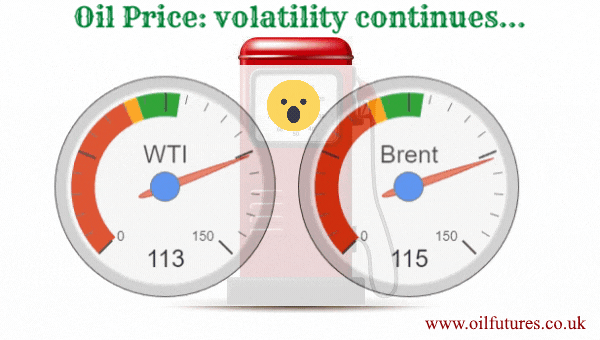With the partial ban of Russian oil in place in the EU, the scramble for finding alternatives by the major consuming nations is gathering momentum across the world, despite the outcome being far from certain.
As of 09:00 on Thursday, WTI and Brent stood at $112.75 and $113.83 respectively with the price of the LNG, liquified natural gas, at $8.80, an increase by over 100% since the war in Ukraine.
Judging by many relevant indicators, the supply chaos continues unabated that does not help maintaining the prices at reasonable levels at present.
Amidst the growing uncertainties, the EIA, US Energy Information Administration, reported a modes crude draw on Wednesday; the API, American Petroleum Institute, meanwhile reported a modest build, a day earlier.
Neither had any significant effect on the movement of the crude oil prices, though.
It is no secret that the OPEC has come under unprecedented pressure to play its role constructively in a critical global emergency; much to the frustration of the West, however, the cartel has not managed to take any radical step to change the status quo.
Although the major oil consuming nations, led by the US, started releasing the SPRs, strategic petroleum reserves, to 'tame' the OPEC+, it did not even achieve a psychological victory, let alone a sharp drop in price; the prices continued to rise even after crossing the economically sensitive $100 a barrel.
Having failed to achieve the goal, the US finally resorted to the nuclear option: using legal means to target the members of the OPEC
on the grounds of price manipulation, by the NOPEC bill - on individual basis; its effectiveness - or lack of it - remains to be seen in the future, though.
The West, meanwhile, has not given up on coming up with counter-measures to deal with the rising oil prices and what they see as the 'lukewarm' response from the OPEC+; the move by Italy to form a cartel of consumers to vent fury and react accordingly is a case in point.
As the oil producers and consumers haggle over the strategy of striking a balance without harming the interests of both camps, the rising energy costs are taking their toll on the global economy with no nation being immune to it.
The global economic growth is showing the definite sign of stagnation or in the worst case scenario, a prolonged contraction.
In this context, it's high time both producers and consuming nations reached an agreement before it is too late - even for trading accusations.







